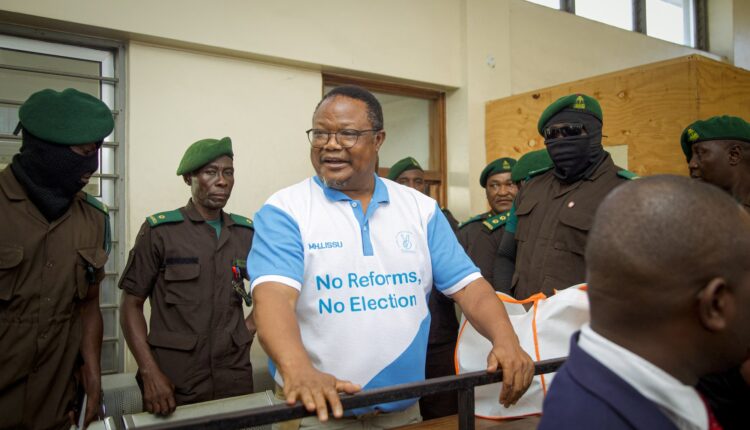Tanzania’s main opposition leader, Tundu Lissu, appeared in court on Monday, May 19, 2025, delivering a defiant message to supporters during a hearing in his treason trial. The case, held at the Kisutu Resident Magistrate’s Court in Dar es Salaam, has intensified fears over democratic backsliding across East Africa.
Lissu, who faces the death penalty if convicted, raised his fist as he entered the courtroom to chants of “No reforms, no election” from his Chadema party supporters. He told them, “We will be fine. Don’t worry at all.”
Charged last month, prosecutors allege Lissu incited rebellion through a speech opposing October’s general elections. Chadema, which he represents, has since been disqualified from the polls after criticizing the electoral process as skewed in favor of the ruling Chama Cha Mapinduzi party.
Lissu, a 2020 presidential runner-up and survivor of a 2017 assassination attempt, insisted on appearing in person for the hearing. He had previously been forced to participate via videolink from prison.
The trial has drawn international attention. Kenyan political figures, including ex-justice minister Martha Karua and former Chief Justice Willy Mutunga, were barred from entering Tanzania to observe the proceedings. They were detained at Julius Nyerere International Airport and deported to Nairobi.
Karua condemned the action, saying, “The state cannot be used as a personal tool,” and warned of a regional erosion of democracy.
The crackdown on opposition figures mirrors developments in neighboring countries. Ethiopia recently banned its leading opposition party, South Sudan delayed elections again, and Rwanda’s president secured a fourth term with over 99 percent of the vote amid repression claims.
President Samia Suluhu Hassan has defended her administration’s human rights record and is seeking re-election in October. However, a wave of high-profile arrests and election-related crackdowns has raised alarm among rights observers across the region.



[…] Prinsloo highlighted the gravity of Claasen’s actions, stating that he exploited his position of authority and trust to prey on a learner in a place meant to be safe—her school. The violation, Prinsloo […]